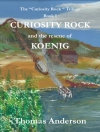In the 'H. G. WELLS Ultimate Collection, ’ readers are presented with a significant compendium of Wells’s diverse oeuvre, showcasing his unparalleled ability to blend social commentary with science fiction. The collection features seminal works such as 'The Time Machine, ’ 'The War of the Worlds, ’ and 'The Invisible Man, ’ which reflect his imaginative approach to speculative fiction during the late 19th and early 20th centuries. Wells masterfully intertwines narrative styles, employing vivid prose and rich allegory to critique contemporary society, while pondering future possibilities, thus positioning his work firmly within the literary and historical context of the Victorian and Edwardian eras. H. G. Wells (1866-1946) hailed from a working-class background and was profoundly influenced by the transformative social, political, and technological changes of his time. His knack for envisioning dystopian futures and exploring the moral implications of scientific advancements is underscored by his formal education and early experiences as a teacher and journalist. Wells’s engagements with socialism and his concerns regarding imperialism also deeply inform the narratives contained within this collection, revealing the interplay between his philosophies and literary creations. This ultimate collection is a treasure trove for avid readers and scholars of speculative fiction alike. It invites readers to traverse Wells’s imaginative landscapes while engaging with the pressing issues of humanity’s future. Through Wells’s prophetic visions, contemporary readers gain valuable insights into our own societal dilemmas, making this collection not only a celebration of his literary legacy but also a relevant exploration of the ethical implications of science and technology.
O autorze
Herbert George Wells, known widely as H. G. Wells (1866-1946), was a prolific English writer in many genres, including the novel, history, and social commentary. He is best remembered as a forward-thinking pioneer of science fiction, which earned him the title 'The Father of Science Fiction’ alongside contemporaries Jules Verne and Hugo Gernsback. Wells’s literary career commenced with 'The Time Machine’ (1895), which along with 'The War of the Worlds’ (1898), 'The Island of Doctor Moreau’ (1896), and 'The Invisible Man’ (1897), represent his most enduring works and showcase his imagination and insight into the human condition, as well as future scientific and technological advancements. His speculative fiction often carried a didactic tone, foregrounding his socialist political views and advocacy for progressive social reform. His 'H. G. WELLS Ultimate Collection’ reflects an extensive repository of his narratives, which traverse utopian dreams and dystopian realities alike, revealing his anxiety about the fruits of industrial and scientific development unchecked by ethical considerations. As a futurist, his predictions have had a lasting impact on both literature and society’s view of the potential trajectory of human progress. Additionally, Wells engaged in educational and political activism and penned several socialogical texts, though it is for his pioneering speculative fiction that he is most fondly remembered in literary history.












